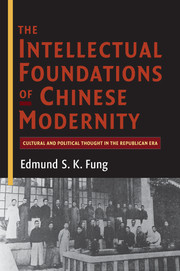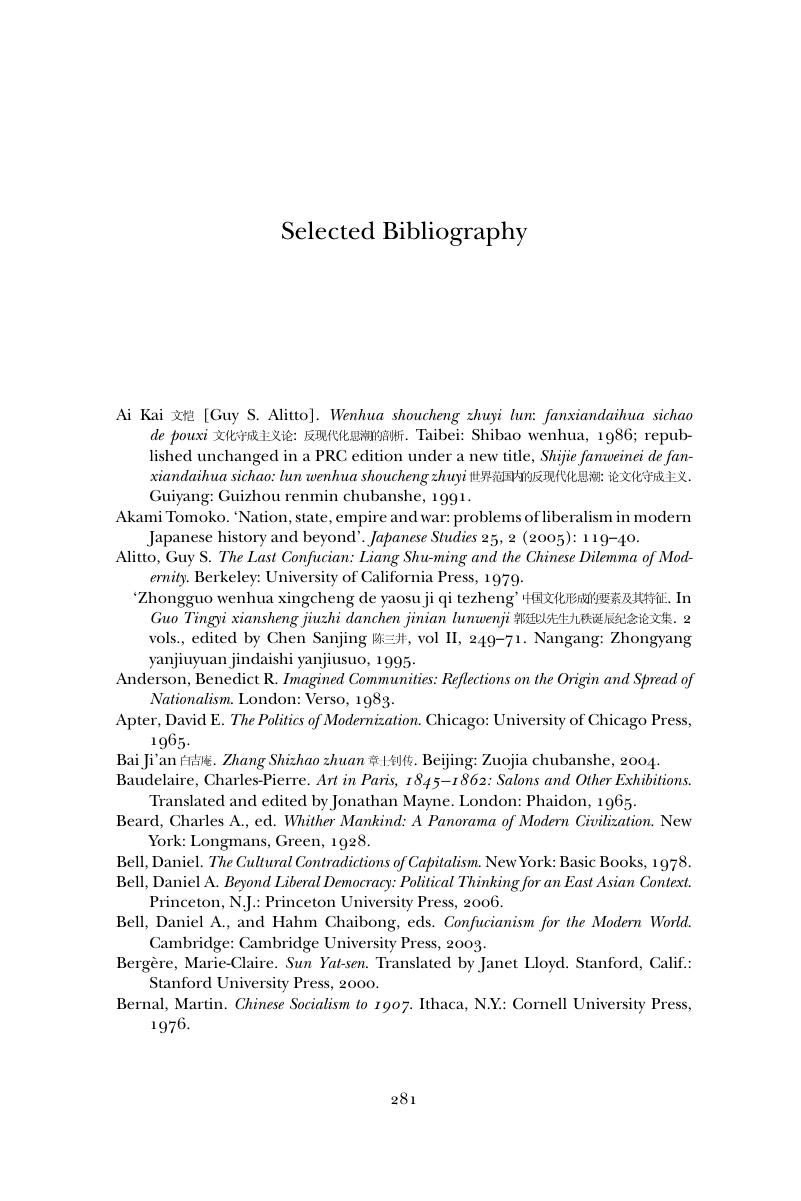 The Intellectual Foundations of Chinese Modernity
The Intellectual Foundations of Chinese Modernity Book contents
- Frontmatter
- Contents
- Acknowledgements
- Abbreviations
- A Note on Romanization
- Introduction
- 1 The Push of Westernized Radicalism
- 2 The Pull of Cultural Conservatism
- 3 The Politics of Modern Chinese Conservatism
- 4 Liberalism in China and Chinese Liberal Thought
- 5 The State, Government and the Rule of Law
- 6 The Rise of Reformist Socialist Thought
- 7 From State Socialism to Social Democracy
- Conclusion
- Glossary
- Selected Bibliography
- Index
- References
Selected Bibliography
Published online by Cambridge University Press: 03 May 2010
- Frontmatter
- Contents
- Acknowledgements
- Abbreviations
- A Note on Romanization
- Introduction
- 1 The Push of Westernized Radicalism
- 2 The Pull of Cultural Conservatism
- 3 The Politics of Modern Chinese Conservatism
- 4 Liberalism in China and Chinese Liberal Thought
- 5 The State, Government and the Rule of Law
- 6 The Rise of Reformist Socialist Thought
- 7 From State Socialism to Social Democracy
- Conclusion
- Glossary
- Selected Bibliography
- Index
- References
Summary

- Type
- Chapter
- Information
- The Intellectual Foundations of Chinese ModernityCultural and Political Thought in the Republican Era, pp. 281 - 306Publisher: Cambridge University PressPrint publication year: 2010


